
The Allure of Zona Hotelera: Cancun's Premier Tourist Paradise
Zona Hotelera, the heart of Cancun's tourism, is a stunning stretch of coastline that offers an endless array of activities, luxury accommodations, and breathtaking views. This narrow strip, nestled between the Caribbean Sea and Nichupté Lagoon, is a playground for those seeking the ultimate beach vacation. Imagine sunbathing on powdery white sands with the turquoise waters of the Caribbean lapping at your feet. Zona Hotelera is renowned for its pristine beaches, each with its own unique charm. Playa Delfines, for example, is famous for its sweeping vistas and is a perfect spot for a tranquil day by the sea. For more adventure, visit Playa Tortugas, where you can engage in water sports like jet-skiing and parasailing. Beyond the beaches, Zona Hotelera boasts world-class resorts and hotels, many of which offer all-inclusive packages that cater to your every need. From gourmet dining to rejuvenating spa treatments, these establishments provide a luxurious escape from the everyday. The nightlife here is equally vibrant, with numerous bars, clubs, and entertainment venues ensuring that the fun continues well into the night. Shopping enthusiasts will find a paradise in Zona Hotelera's many malls and boutiques. La Isla Shopping Village offers a mix of high-end retailers and charming local shops, all set against a picturesque lagoon backdrop. For a taste of local culture, visit the El Rey Ruins, an ancient Mayan site that provides a fascinating glimpse into the area's rich history.
Local tips in Zona Hotelera
- Visit early in the morning to enjoy the beaches before they get crowded.
- Take advantage of the all-inclusive packages offered by many hotels for a hassle-free stay.
- Try local cuisine at the food stalls in El Parque de las Palapas for an authentic taste of Cancun.
- Use the public buses for an affordable and convenient way to travel around Zona Hotelera.
- Don't miss the sunset views from the Nichupté Lagoon side of the strip.
The Allure of Zona Hotelera: Cancun's Premier Tourist Paradise
Zona Hotelera, the heart of Cancun's tourism, is a stunning stretch of coastline that offers an endless array of activities, luxury accommodations, and breathtaking views. This narrow strip, nestled between the Caribbean Sea and Nichupté Lagoon, is a playground for those seeking the ultimate beach vacation. Imagine sunbathing on powdery white sands with the turquoise waters of the Caribbean lapping at your feet. Zona Hotelera is renowned for its pristine beaches, each with its own unique charm. Playa Delfines, for example, is famous for its sweeping vistas and is a perfect spot for a tranquil day by the sea. For more adventure, visit Playa Tortugas, where you can engage in water sports like jet-skiing and parasailing. Beyond the beaches, Zona Hotelera boasts world-class resorts and hotels, many of which offer all-inclusive packages that cater to your every need. From gourmet dining to rejuvenating spa treatments, these establishments provide a luxurious escape from the everyday. The nightlife here is equally vibrant, with numerous bars, clubs, and entertainment venues ensuring that the fun continues well into the night. Shopping enthusiasts will find a paradise in Zona Hotelera's many malls and boutiques. La Isla Shopping Village offers a mix of high-end retailers and charming local shops, all set against a picturesque lagoon backdrop. For a taste of local culture, visit the El Rey Ruins, an ancient Mayan site that provides a fascinating glimpse into the area's rich history.
Iconic landmarks you can’t miss
Ferris Wheel Cancun
Experience breathtaking views of Cancun's skyline and the Caribbean Sea aboard the iconic Sky Wheel Cancun, your gateway to unforgettable memories.
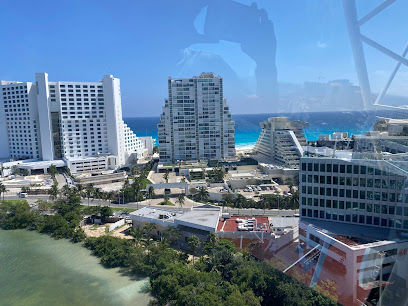
Interactive Aquarium Cancún
Discover the Interactive Aquarium Cancún, where marine life comes alive with interactive exhibits, dolphin shows, and educational experiences for the whole family.
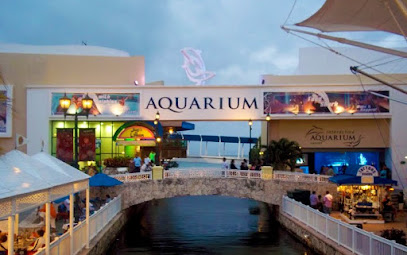
El Rey Archaeological Zone
Explore the ancient Mayan civilization at El Rey Archaeological Zone in Cancun's Hotel Zone, an enchanting blend of history, nature, and tranquility.
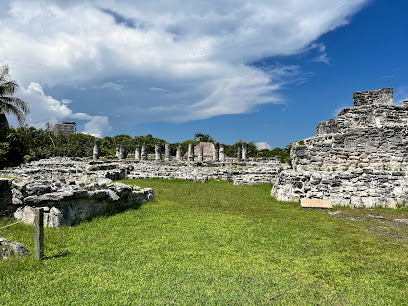
Torre Escénica del Embarcadero de Cancún
Discover breathtaking views of Cancun and the Caribbean Sea from the iconic Torre Escénica del Embarcadero, a must-visit for every traveler.
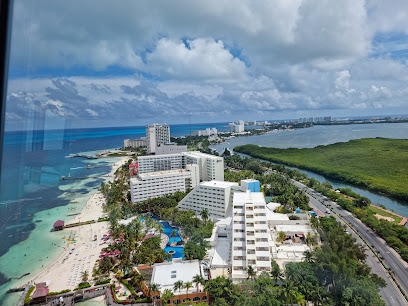
Playa Forum
Experience the ultimate beach getaway at Playa Forum in Cancún, where sun, sand, and vibrant culture come together for an unforgettable vacation.
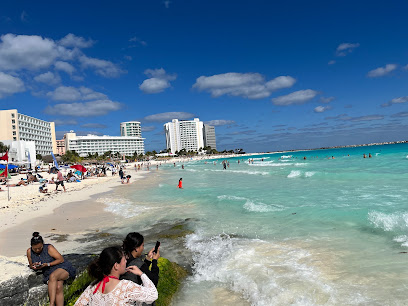
Punta Cancun LightHouse
Discover the enchanting beauty of Punta Cancun Lighthouse, a stunning landmark offering breathtaking ocean views and a serene escape in Cancun's vibrant Hotel Zone.
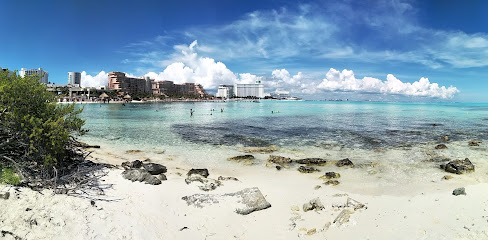
Zona Hotelera Cancun
Discover the stunning beaches, vibrant nightlife, and cultural delights of Zona Hotelera Cancun, a top destination for tourists seeking unforgettable experiences.
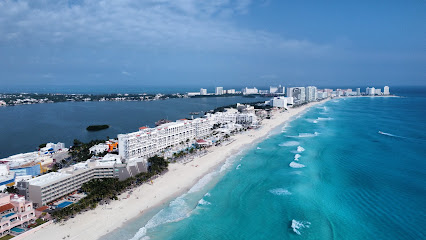
Cancun Sign
Experience the vibrant Cancun Sign in the heart of the Hotel Zone - the perfect spot for unforgettable vacation photos.
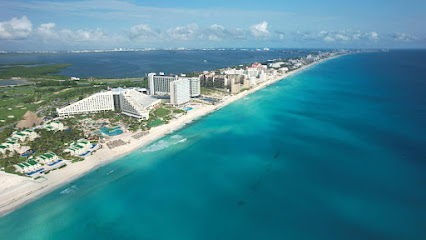
The Rock
Discover the stunning natural beauty of The Rock in Cancun's Hotel Zone, a perfect blend of relaxation and adventure amidst breathtaking views.
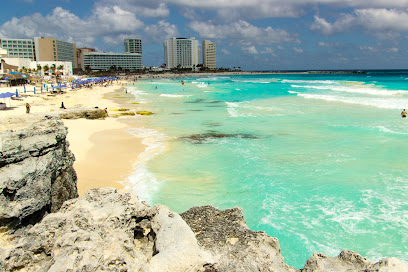
La Estela Maya
Unveil the mysteries of the Mayan civilization at La Estela Maya, a captivating tourist attraction in Cancun's stunning Hotel Zone.
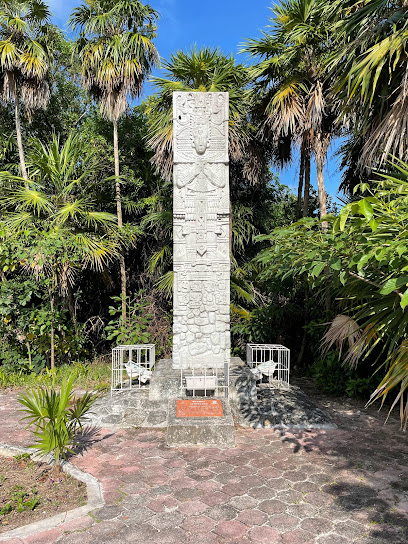
Unmissable attractions to see
Ferris Wheel Cancun
Experience breathtaking views of Cancun from the iconic Ferris Wheel, a must-visit attraction in the heart of the Hotel Zone.
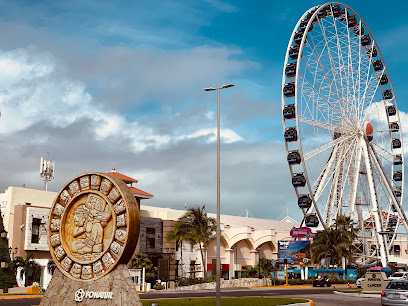
Captain Hook Cancun
Experience the thrill of a pirate adventure with dinner and entertainment aboard Captain Hook Cancun's iconic ship in the beautiful Caribbean waters.
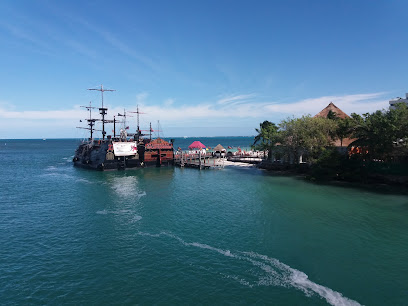
Letras Cancun Y Mirador
Experience the breathtaking views and vibrant atmosphere at Letras Cancun Y Mirador, a must-visit coastal attraction in Cancun's Hotel Zone.
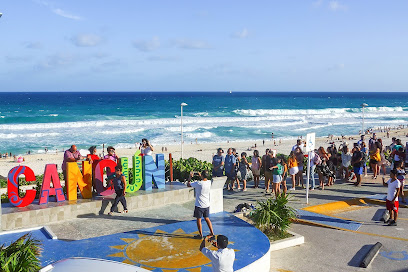
Jardín del Arte
Explore the enchanting Jardín del Arte in Cancún, where nature meets creativity in a stunning park setting perfect for relaxation and inspiration.
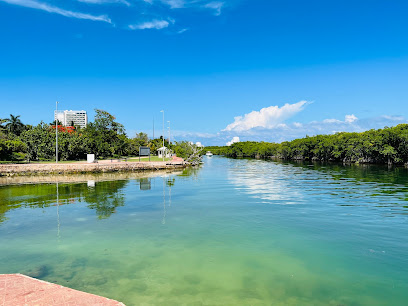
Cancun Wax Museum
Discover your favorite stars and icons at Cancun Wax Museum - a must-visit attraction for families and fun seekers in the heart of Cancun's Hotel Zone.
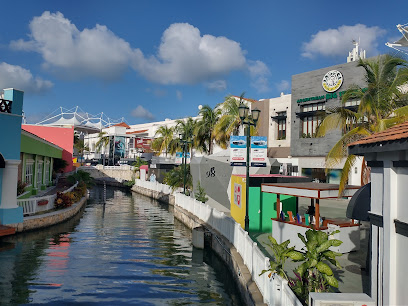
Zona Hotelera Cancun
Discover the breathtaking beauty and vibrant culture of Zona Hotelera Cancun, where luxury meets adventure along Mexico's stunning coastline.
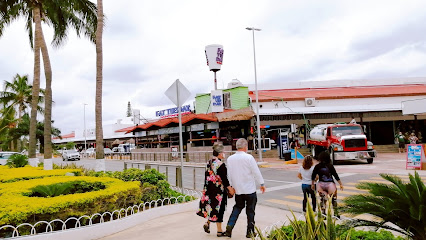
Essential places to dine
Bubba Gump Shrimp Co. Cancún
Discover the flavors of the sea at Bubba Gump Shrimp Co. Cancún – where every meal is a celebration inspired by 'Forrest Gump'.
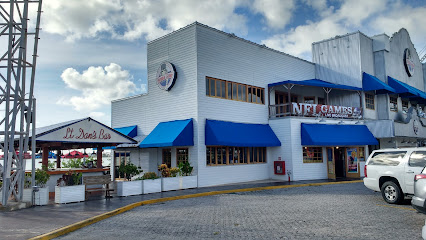
Harry's Steakhouse & Raw Bar | Cancun
Experience luxury dining at Harry's Steakhouse & Raw Bar in Cancun - where prime steaks meet fresh seafood in an elegant atmosphere.
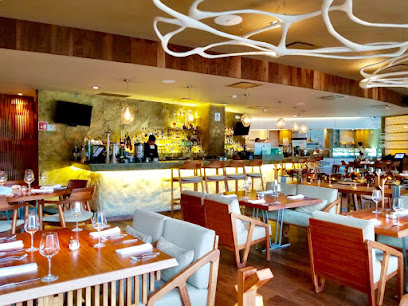
Fred's | The best seafood in Cancun
Experience exquisite seafood dining at Fred's in Cancun's Hotel Zone—where every dish tells a story of oceanic delight.
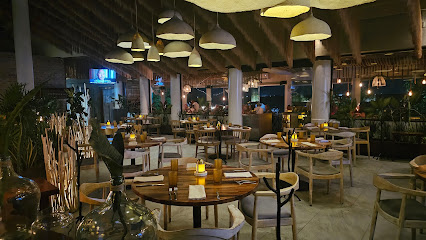
Lorenzillo's
Experience fine dining at Lorenzillo's in Cancún—where fresh seafood meets stunning ocean views for an unforgettable culinary journey.
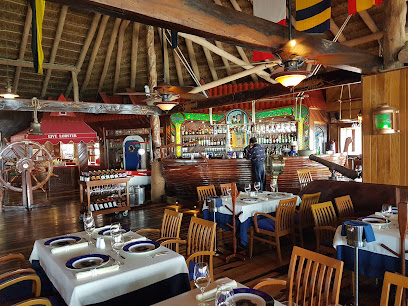
RosaNegra | Latin American Restaurant in Cancun
Discover RosaNegra: Cancun's premier Nuevo Latino restaurant offering exquisite dishes and breathtaking views for an unforgettable dining experience.
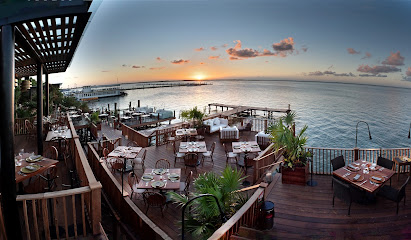
Crab House | The best seafood in Cancun
Discover the best seafood dining experience at Crab House in Cancun - where fresh catches meet Caribbean flair in a vibrant setting.
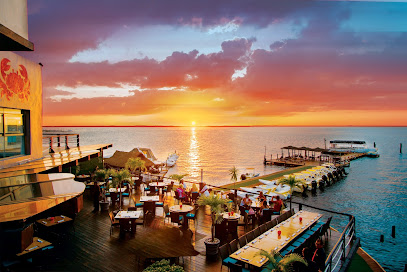
Restaurante Mediterraneo
Discover exquisite Mediterranean cuisine at Restaurante Mediterraneo in Cancún's Hotel Zone, where flavor meets elegance.
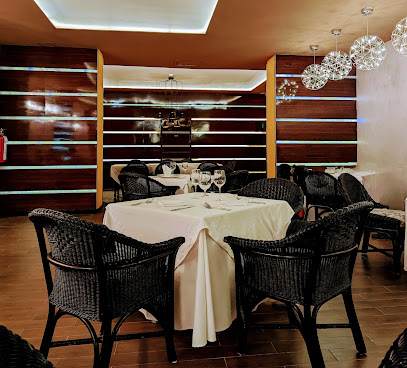
Cancun Lighthouse Restaurant
Experience unforgettable seafood dining with breathtaking views at Cancun Lighthouse Restaurant in Mexico's vibrant Hotel Zone.
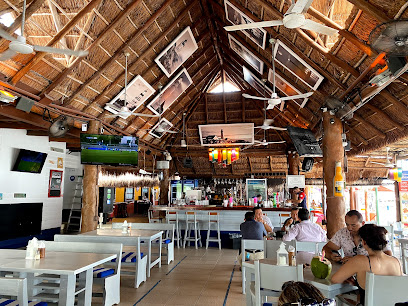
Chambao Cancun | Best Steakhouse in Cancun
Experience the best steakhouse in Cancun with exquisite flavors and breathtaking views at Chambao Cancun.
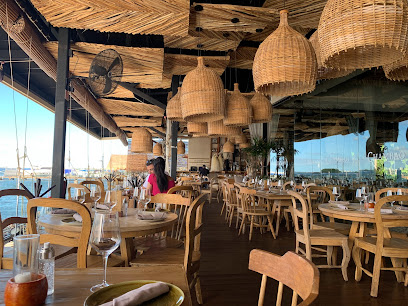
Cenacolo Hotel Zone Cancún
Experience exquisite Italian dining at Cenacolo Hotel Zone Cancún, where authentic flavors meet stunning views in paradise.
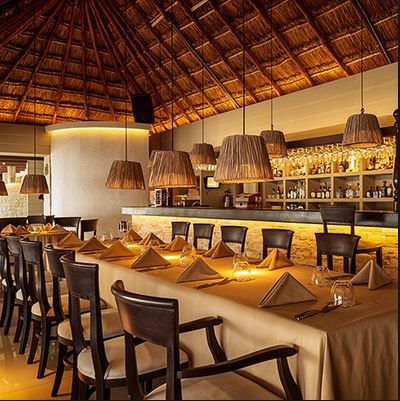
Markets, malls and hidden boutiques
PLAZA PARTY
Explore Plaza Party: A vibrant Mexican grocery store in Cancun offering artisan chocolates, local liquors, and unique souvenirs for every traveler.
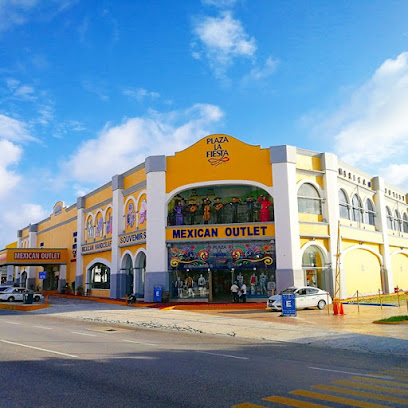
La Boutique Palacio Cancún
Experience the epitome of luxury shopping at La Boutique Palacio Cancún, where high-end brands meet exquisite local crafts.
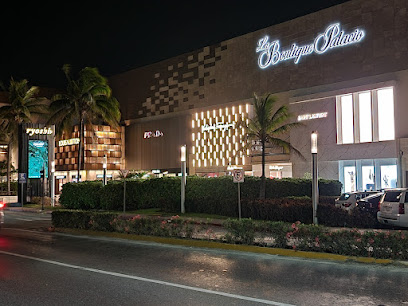
Flea Market
Explore the vibrant Flea Market in Cancun, where unique souvenirs, local crafts, and delicious street food await every traveler.
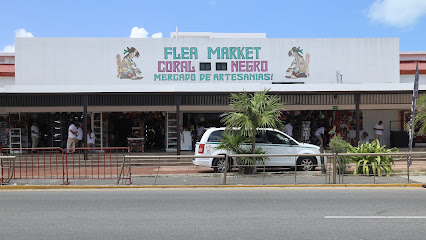
Plaza la Fiesta
Experience the heart of Mexican culture at Plaza la Fiesta, Cancun's premier destination for handicrafts and authentic souvenirs.
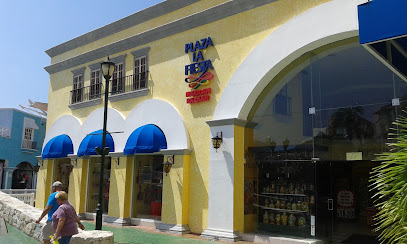
Cancun Mart
Explore Cancun Mart, a vibrant boutique offering handcrafted treasures and unique fashion in the heart of Cancun's Hotel Zone.
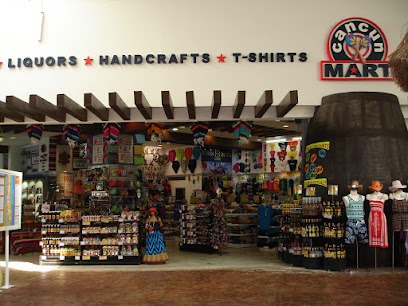
SOUVENIRS SHOP
Explore the vibrant El Rey Souvenir Shop in Cancún for unique mementos, handcrafted gifts, and a taste of Mexican culture.
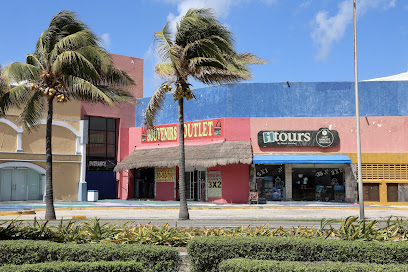
Souvenir Shop
Discover the charm of Cancún through unique souvenirs that capture the essence of your travel experience.
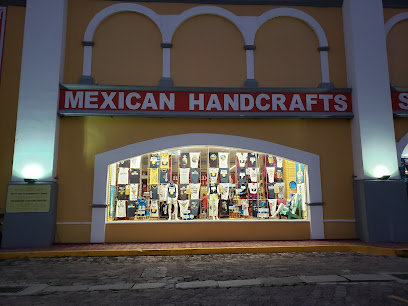
Cancun Souvenir Stop
Discover the vibrant essence of Mexico at Cancun Souvenir Stop, your go-to destination for authentic crafts and unique souvenirs.
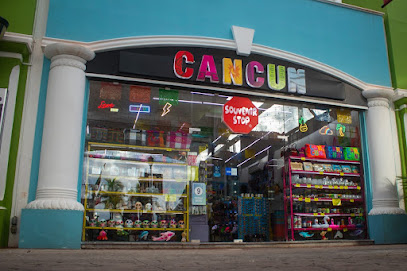
Pier 27 Beach Life
Experience the vibrant culture of Cancún at Pier 27 Beach Life, your go-to shop for unique souvenirs and stunning Caribbean views.
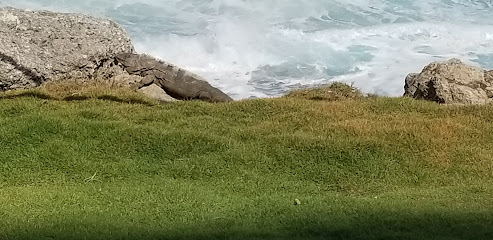
Boutique uncela
Discover Boutique Uncela in Cancún's Zona Hotelera – a unique shopping experience filled with locally crafted treasures and stylish finds.
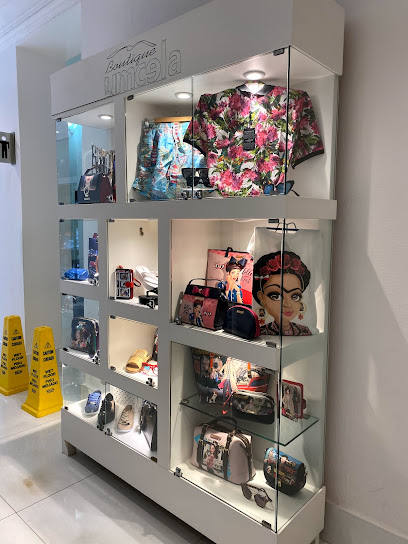
Essential bars & hidden hideouts
Cotorritos
Experience the vibrant nightlife at Cotorritos, a top bar in Cancún's Hotel Zone, known for its lively atmosphere and extensive drink selection.
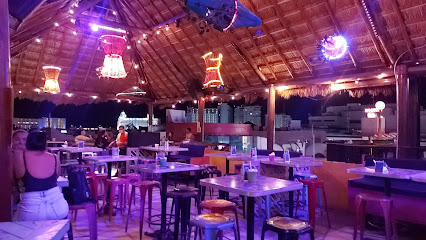
Fat Tuesday Forum by Sea Plaza
Experience the vibrant nightlife at Fat Tuesday Forum in Cancún, where tropical cocktails and lively ambiance create unforgettable memories.
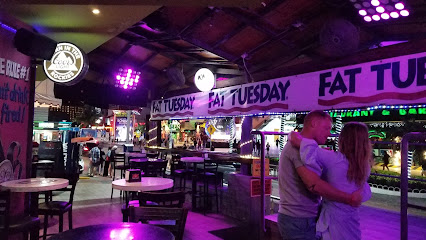
Bar Del Mar
Discover the vibrant flavors of Bar Del Mar, a premier grill on Cancun's Kukulcan Boulevard, offering unforgettable dining with stunning sea views.
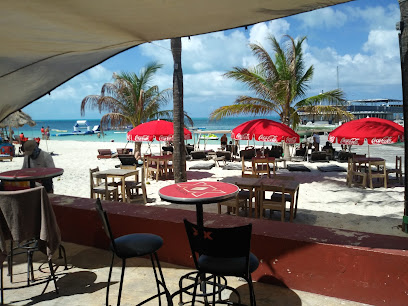
Alebris bar
Discover the vibrant Alebris Bar in Cancún's hotel zone, where tropical drinks meet a lively atmosphere and stunning ocean views.
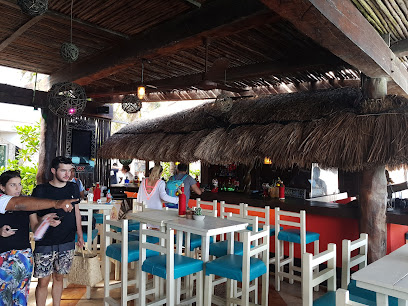
Bar del Mar
Discover the tropical charm of Bar del Mar in Cancun's Hotel Zone, where exquisite cocktails and stunning ocean views await every visitor.
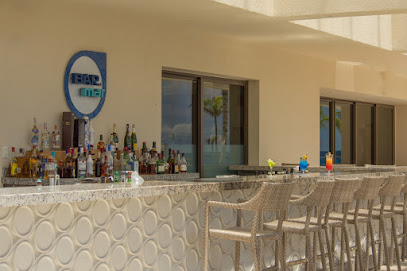
Quiet Pool Bar
Experience the perfect blend of relaxation and vibrant atmosphere at the Quiet Pool Bar in Cancún's Hotel Zone.
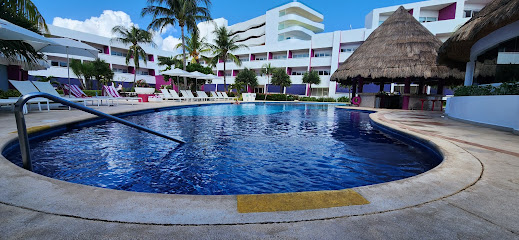
Dips & Sips
Experience the vibrant atmosphere of Dips & Sips, a beachside bar in Cancun's Hotel Zone offering refreshing cocktails and stunning ocean views.
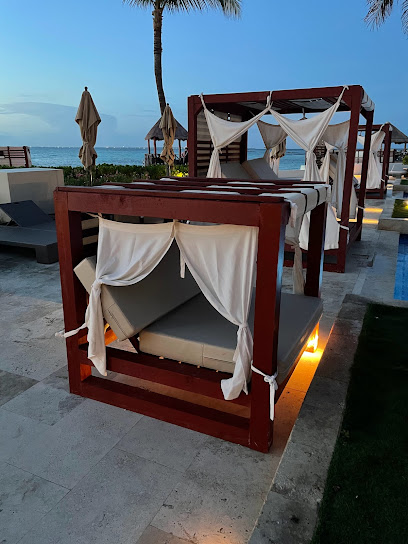
Fat Tuesday Forum Cancun Playa
Discover the lively spirit of Cancun at Fat Tuesday Forum, where vibrant cocktails and a festive atmosphere await you.
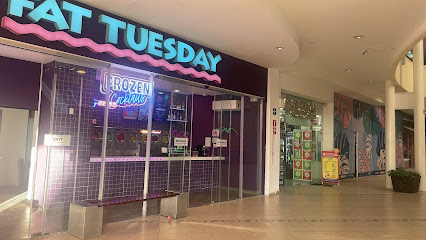
WXYZ Lounge
Experience the electrifying atmosphere of WXYZ Lounge, Cancun's premier bar and nightclub, where innovative cocktails and vibrant nightlife await.
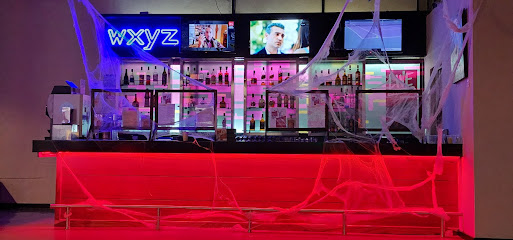
Kandi Palace Kandi Realty
Experience the vibrant nightlife at Kandi Palace, a premier bar in Punta Cancun, where unforgettable memories and delicious cocktails await.
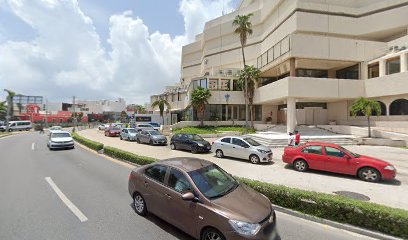
Local Phrases
-
- HelloHola
[oh-lah] - GoodbyeAdiós
[ah-dee-ohs] - YesSí
[see] - NoNo
[noh] - Please/You're welcomePor favor/De nada
[por fah-vor/de nah-dah] - Thank youGracias
[grah-see-ahs] - Excuse me/SorryPerdón/Lo siento
[pair-dohn/loh see-en-toh] - How are you?¿Cómo estás?
[koh-moh ehs-tahs] - Fine. And you?Bien. ¿Y tú?
[bee-ehn. ee too] - Do you speak English?¿Hablas inglés?
[ah-blahs een-glehs] - I don't understandNo entiendo
[noh ehn-tee-ehn-doh]
- HelloHola
-
- I'd like to see the menu, pleaseMe gustaría ver el menú, por favor
[meh goo-stah-ree-ah vehr ehl meh-noo, poor fah-vor] - I don't eat meatNo como carne
[noh koh-moh kahr-neh] - Cheers!¡Salud!
[sah-lood] - I would like to pay, pleaseMe gustaría pagar, por favor
[meh goo-stah-ree-ah pah-gahr, poor fah-vor]
- I'd like to see the menu, pleaseMe gustaría ver el menú, por favor
-
- Help!¡Ayuda!
[ah-yoo-dah] - Go away!¡Vete!
[veh-teh] - Call the Police!¡Llama a la Policía!
[yah-mah ah lah poh-lee-see-ah] - Call a doctor!¡Llama a un doctor!
[yah-mah ah oon dohk-tohr] - I'm lostEstoy perdido
[ehs-toy pair-dee-doh] - I'm illEstoy enfermo
[ehs-toy ehn-fehr-moh]
- Help!¡Ayuda!
-
- I'd like to buy...Me gustaría comprar...
[meh goo-stah-ree-ah kohm-prahr] - I'm just lookingSólo estoy mirando
[soh-loh ehs-toy mee-rahn-doh] - How much is it?¿Cuánto cuesta?
[kwahn-toh kwehs-tah] - That's too expensiveEso es muy caro
[eh-soh ehs moo-ee kah-roh] - Can you lower the price?¿Puede bajar el precio?
[pweh-deh bah-har ehl preh-see-oh]
- I'd like to buy...Me gustaría comprar...
-
- What time is it?¿Qué hora es?
[keh oh-rah ehs] - It's one o'clockEs la una
[ehs lah oo-nah] - Half past (10)Las diez y media
[lahs dee-ehs ee meh-dee-ah] - MorningMañana
[mah-nyah-nah] - AfternoonTarde
[tahr-deh] - EveningNoche
[noh-cheh] - YesterdayAyer
[ah-yehr] - TodayHoy
[oy] - TomorrowMañana
[mah-nyah-nah] - 1Uno
[oo-noh] - 2Dos
[dohs] - 3Tres
[trehs] - 4Cuatro
[kwah-troh] - 5Cinco
[seen-koh] - 6Seis
[sehs] - 7Siete
[see-eh-teh] - 8Ocho
[oh-choh] - 9Nueve
[nweh-veh] - 10Diez
[dee-ehs]
- What time is it?¿Qué hora es?
-
- Where's a/the...?¿Dónde está...?
[dohn-deh ehs-tah] - What's the address?¿Cuál es la dirección?
[kwahl ehs lah dee-rehk-see-ohn] - Can you show me (on the map)?¿Puede mostrarme (en el mapa)?
[pweh-deh mohs-trar-meh (ehn ehl mah-pah)] - When's the next (bus)?¿Cuándo es el próximo (autobús)?
[kwan-doh ehs ehl proh-ksee-moh (ow-toh-boos)] - A ticket (to ....)Un boleto (a ....)
[oon boh-leh-toh (ah)]
- Where's a/the...?¿Dónde está...?
History of Zona Hotelera
-
The area that is now Zona Hotelera was largely uninhabited until the 1970s, when the Mexican government identified the region as a prime location for tourism development. The vision was to transform this coastal area into a tourist destination that could rival other popular spots in the Caribbean. This plan was spearheaded by the Mexican government and the National Fund for Tourism Development (FONATUR), leading to the establishment of Cancun as a resort city.
-
In the early 1970s, construction began in Zona Hotelera, marked by the development of hotels, restaurants, and entertainment venues designed to accommodate the growing influx of tourists. The first major hotel, the Hyatt Regency Cancun, opened in 1976, setting the stage for a rapid expansion of the hospitality industry in the area. This development was crucial in establishing Cancun as one of the most sought-after tourist destinations in the world.
-
As tourism flourished, Zona Hotelera became a melting pot of cultures, blending ancient Mayan traditions with modern Mexican hospitality. The influence of the local Mayan heritage can be seen in the architecture and design of many hotels and resorts, as well as in cultural events and festivals that celebrate the region's indigenous history, including the Day of the Dead and other traditional festivities.
-
The rapid development of Zona Hotelera raised concerns over environmental sustainability and the preservation of natural resources. In response, various initiatives have been implemented to protect the coastal ecosystem, including the establishment of protected marine areas and programs aimed at reducing pollution and conserving biodiversity. These efforts are crucial to maintaining the area's natural beauty, which is a major draw for tourists.
-
Today, Zona Hotelera is a vibrant hub of activity, featuring luxurious resorts, shopping centers, and lively nightlife, while still paying homage to its roots through cultural experiences. The area's ongoing evolution continues to attract millions of visitors each year, making it an integral part of Cancun's identity and economic landscape. The juxtaposition of modern amenities and historical significance creates a unique atmosphere that enriches the travel experience.
Zona Hotelera Essentials
-
Zona Hotelera is easily accessible from Cancun International Airport, located about 20 kilometers away. You can take a taxi, which is the most convenient option, or use shuttle services provided by many hotels. If you're coming from downtown Cancun or other neighborhoods, local buses (R-1 and R-2) run frequently along Boulevard Kukulcan, the main road in Zona Hotelera. Alternatively, taxis are widely available and reasonably priced.
-
Zona Hotelera is predominantly a tourist area, making it easy to navigate. The local bus service is affordable and runs frequently along the main boulevard, connecting you to various hotels, beaches, and attractions. Taxis are also readily available, and many hotels offer shuttle services to nearby attractions. For a more leisurely experience, consider renting a bicycle, as dedicated bike paths are available along the hotel zone.
-
While Zona Hotelera is generally safe for tourists, it is advisable to exercise caution, especially at night. Avoid walking on secluded beaches after dark and keep an eye on your belongings in crowded areas. Certain areas of downtown Cancun have higher crime rates, particularly around the central market and some neighborhoods to the west of Avenida Tulum, so it's best to avoid these areas at night.
-
In case of an emergency, dial 911 for immediate assistance. This number connects you to police, fire, and medical services. Many hotels have their own security teams and can assist with emergencies, including medical situations. It is advisable to have travel insurance that covers emergencies, and the nearest hospitals are located in downtown Cancun, about 15-20 minutes away by taxi.
-
Fashion: Do wear swimwear at the beach but cover up with light clothing when venturing to restaurants or shops. Don’t wear overly revealing clothing outside of beach areas. Religion: Do respect local customs, especially when visiting religious sites or participating in local ceremonies. Public Transport: Do be courteous on buses and give up your seat to elderly passengers. Don’t eat or drink on public transport. Greetings: Do greet locals with a friendly smile or nod. A handshake is common in more formal situations. Eating & Drinking: Do try local street food but be cautious about hygiene. Don’t drink tap water; always opt for bottled water.
-
To experience Zona Hotelera like a local, visit the lesser-known beaches such as Playa Delfines, which is popular among locals for its quieter atmosphere. Explore the local markets like Mercado 28 for authentic souvenirs and local cuisine. Engage with local vendors and ask for recommendations on food and attractions. For a unique experience, consider dining at local seafood shacks instead of touristy restaurants to enjoy fresh, authentic dishes.
Nearby Cities to Zona Hotelera
-
Things To Do in Playa del Carmen
-
Things To Do in Cozumel
-
Things To Do in Tulum
-
Things To Do in Corozal Town
-
Things To Do in San Pedro
-
Things To Do in Orange Walk Town
-
Things To Do in Caye Caulker
-
Things To Do in Campeche
-
Things To Do in Belize City
-
Things To Do in Dangriga
-
Things To Do in Hopkins
-
Things To Do in San Ignacio
-
Things To Do in Tikal
-
Things To Do in Roatán
-
Things To Do in Placencia













